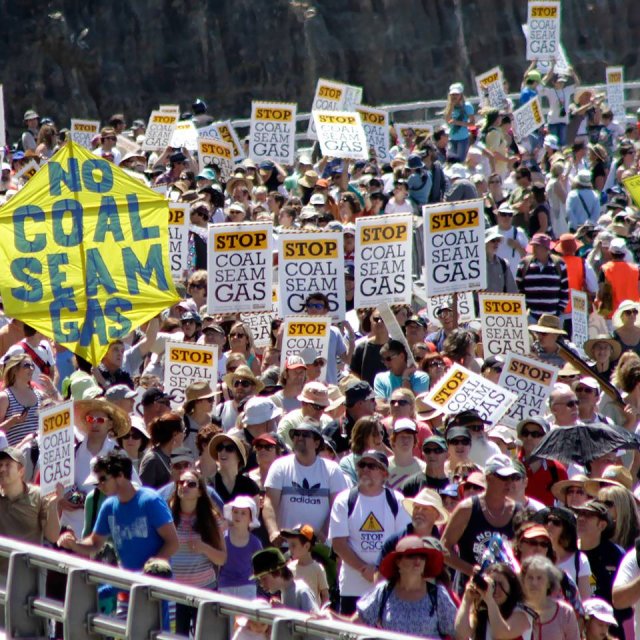
Most people think that democracy and elections are pretty much the same thing. The truth is that any meaningful push for genuine democracy would require a lot more than just electoral reform.
The change of prime minister from Tony Abbott to Malcolm Turnbull shows that a change of leader means very little in terms of actual policy change. And this is not because the policies they push are popular.
We need a change of government: not just a change from the Liberals to Labor, but a change from corporate power to people power.
Every phase of the “democratic” process is corrupted by big money. It is fair to say that we live in a corporate dictatorship, not a genuine democracy.
Anyone who stands on the street handing out leaflets learns very fast that there is a lot more to “free speech” than the right to not be harassed by a security guard, a council ranger or police officer. Even these things are not assured in Australia's “democracy”.
The fact is that to be heard you need the power of the big media corporations. But who expects the media corporations to reflect anything but a pro-corporate bias? They are, after all, corporations themselves.
Moreover, their main income comes from corporate advertising and we all know that “whoever pays the piper calls the tune”.
In order to get consistent, favourable coverage in the media you either need a lot of money to pay for advertising or you have to speak in favour of the interests of the existing corporate advertisers and their system.
Everyone has the right to contest an election — as long as you jump over the undemocratic hurdles required to register a political party. However, it takes money to produce publicity and advertising. Simply appearing on the ballot can cost federal lower house candidates $1000 and a minimum of $4000 for those wanting to present a Senate ticket.
Of course a lot of people presume that the way to get into politics is to join a political party that can help pay some of these costs. However, once again we come up against the fact that the two best-resourced parties — Labor and Liberal — are both bought and paid for by the big corporations.
Nobody doubts that when elections are conducted by the Australian Electoral Commission, the double-blind, randomised method of choosing the order of candidates on the ballot paper is scrupulously proper.
However, on the more substantial question of whether or not voters know the policies being advocated by the different candidates, the Australian system is woefully inadequate. Only those candidates who have been promoted by the establishment media have a chance of being recognised by large numbers of voters.
Once elected, the interests of big money are protected by, among other things: ongoing media campaigns in their interest; the extravagant salaries and perks paid out to politicians; the significant power of an unelected bureaucracy; direct and indirect bribery of elected officials; and conservative traditions and conventions that serve to stifle radical change.
So what is the alternative?
The Socialist Alliance campaigns for genuine democratic changes that put decision-making power in the hands of the people.
Even some simple reforms — such as proportional representation — could begin to make a difference.
At the last election, the Greens won almost 9% of the lower house vote but came away with less than 1% of lower house seats. By contrast the Nationals won less than half the vote of the Greens, but won 6% of the seats up for election.
Proportional representation would allow parties to be represented in accordance with their support among the electorate.
Even more important than proportional representation however, is the power for electors to hold their representatives to account. Voters should have the power to recall individual members — and even the whole government — if they are not happy with the performance of their elected representatives.
Another critical measure is reducing the exorbitant salaries and perks of office that encourage politicians to identify with the big end of town. Politicians should be paid no more than an average worker's wage.
Senior public servants also wield significant power. They should be accountable to the people.
At the most basic level, there is only one alternative to the power of big money. That is the power of the people.
The entire government apparatus should be remodelled to facilitate the direct participation of ordinary people in the decision-making process. As much of the business of government as possible should be implemented by local meetings where communities can directly make decisions about the things that affect their lives.
From this standpoint, a shorter working week with no loss in pay is not only a reasonable measure for boosting employment and improving workers' lives; it is also a key mechanism to make possible a more democratic society.
The democratic rights we currently have — including the right to vote and the right to protest — were won in struggles by ordinary people against elite power.
The Socialist Alliance stands in this tradition of campaigning to win genuine democracy — a vital prerequisite for ensuring an environmentally sustainable and socially just future.
Like the article? Subscribe to Green Left now! You can also like us on Facebook and follow us on Twitter.